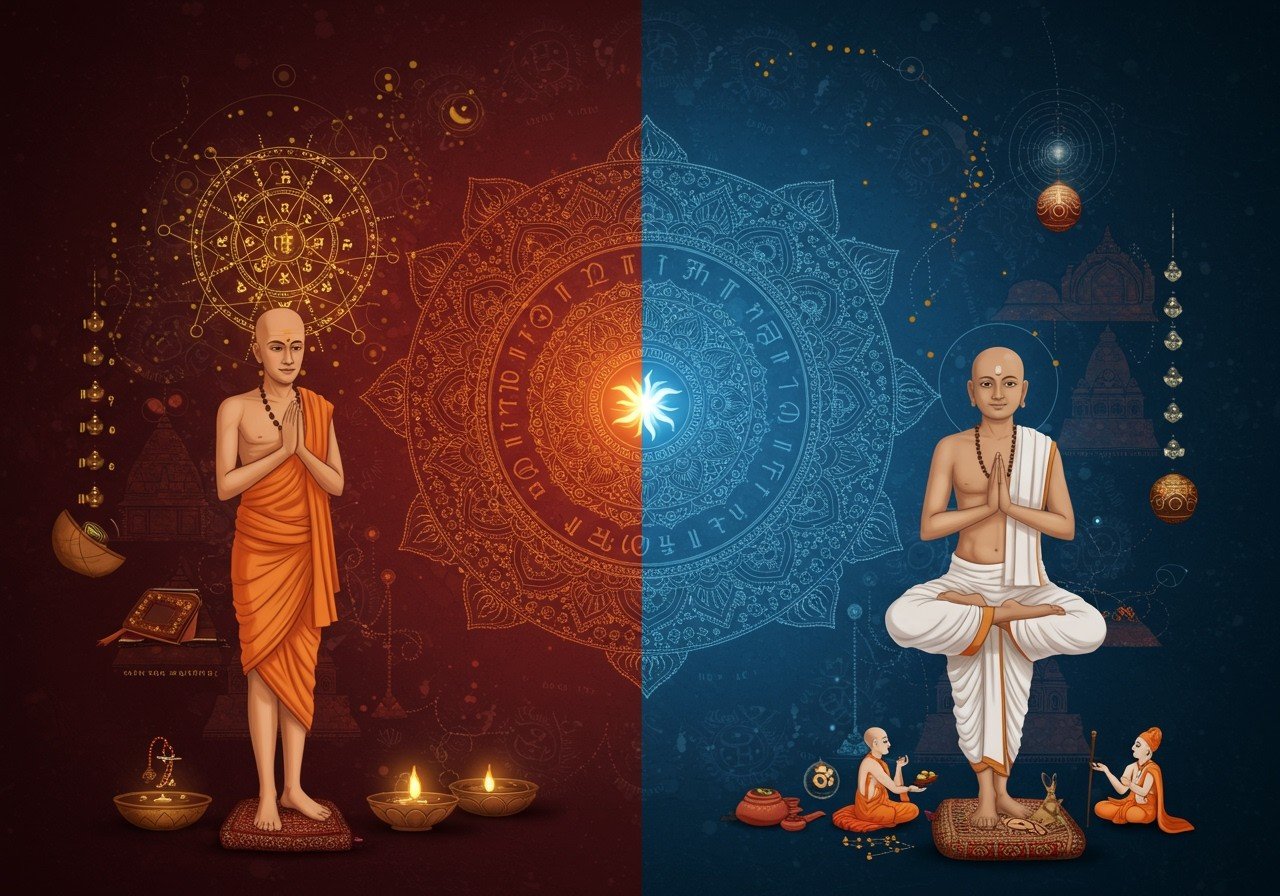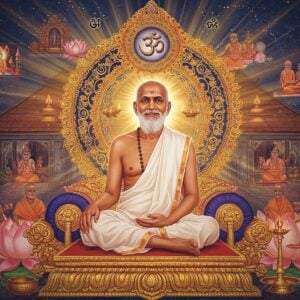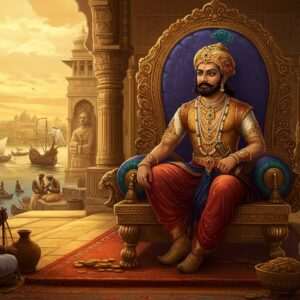
Explore the fascinating world of ancient Indian philosophies with Ajivika and Jainism, two influential schools of thought. Originating around the 5th century BCE, alongside Buddhism, these philosophies deeply impacted India’s cultural and spiritual landscape. Discover their historical roots and their continued relevance for those who cherish tradition and authentic rituals. For those seeking items related to Jain rituals, poojn.in offers a wide variety of products.
Origins and Historical Context
Ajivika and Jainism trace their beginnings to the 5th century BCE in the Magadha region of India. Makkhali Gosala founded Ajivika, while Mahavira, the 24th Tirthankara, was central to Jainism’s growth. During this era, numerous Shramana movements emerged, challenging the established Vedic traditions. These philosophies interacted with other religious movements, shaping the spiritual framework of the Indian subcontinent. You can find traditional items for Jain rituals at poojn.in.
Core Philosophical Tenets
Ajivika and Jainism present distinct doctrines. Ajivika centers on niyati (destiny), suggesting that all events are preordained. This philosophy posits that human actions have no bearing on ultimate outcomes. In contrast, Jainism emphasizes karma and free will, asserting that individuals have the power to shape their spiritual destinies. Jainism also upholds principles like ahimsa (non-violence), anekantavada (many-sided reality), and aparigraha (non-possessiveness), which profoundly influence the ethical and spiritual lives of its adherents. Ajivikas, on the other hand, focus on the soul and its liberation through rigorous ascetic practices.
Looking for resources to deepen your understanding of Jainism? Visit poojn.in for insightful articles on Dharma and Karma.
Ajivika and Jainism: Practices and Rituals
Ajivikas and Jains developed unique spiritual practices. Ajivika monks led an austere, itinerant life characterized by strict discipline and adherence to niyati. Jain monastic practices, meanwhile, include vows of celibacy, non-violence, and truthfulness, reflecting the emphasis on self-purification and ethical conduct. Important rituals like Paryushana and Mahavir Jayanti hold deep cultural significance for Jains, strengthening community bonds and reinforcing core values. Both traditions place high value on renunciation and spirituality but express these ideals through different paths. Discover a wide range of puja items at Poojn.in to enhance your spiritual practice.
The Decline of Ajivika and the Endurance of Jainism
Several factors contributed to the decline of Ajivika, including the absence of strong textual traditions and the eventual assimilation of its adherents into other philosophical communities. Conversely, Jainism has endured through the centuries thanks to its extensive literature, well-organized community structure, and consistent presence within India’s diverse religious landscape. Jain art, literature, and architecture have played a vital role in preserving its core values and transmitting its teachings across generations. Poojn.in provides more insights into the diverse traditions of Hinduism and its global reach.
Cultural Influence and Modern Relevance
Ajivika and Jainism have exerted a profound influence on Indian culture, art, and thought. Jainism’s steadfast focus on non-violence and environmentalism resonates deeply with contemporary global concerns, making its ethical framework particularly relevant in modern ethical discussions. Similarly, Ajivika’s unique deterministic worldview offers valuable lessons for navigating the complexities of contemporary life, encouraging self-reflection, acceptance, and a focus on spiritual growth and ethical living. Explore these ancient traditions further to fully appreciate their enduring wisdom and their lasting impact on Indian culture and spirituality. If you are looking for specific products related to Lord Shiva, you can explore options available on Poojn.in.
Key Differences between Ajivika and Jainism
- Core Beliefs: Ajivika championed determinism (niyati), believing fate dictates everything, while Jainism emphasizes free will and the pursuit of liberation (moksha) through ethical conduct and spiritual purity. Ajivika believed fate guides individuals toward liberation, while Jainism emphasizes self-effort and non-violence (ahimsa) as paths to moksha.
- Karma: Ajivikas didn’t believe in karma, asserting that actions don’t impact one’s future, while Jainism places karma at the core of its ethics, stating that harmful actions create negative karmic bonds. Jains believe that accumulating bad karma hinders liberation, while Ajivikas dismissed the concept of karma entirely.
- Concept of God: Ajivika’s stance on God is ambiguous, with some sources suggesting atheism and others hinting at a divine will aligned with fate. Jainism doesn’t believe in a creator God but recognizes liberated souls as gods. While some sources indicate Ajivikas might have believed in a form of divine will, Jains believe divinity is achievable by any being through the elimination of karma.
For a deeper dive into specific deities and rituals, explore Poojn.in’s blog on Durga Puja and other related topics.


